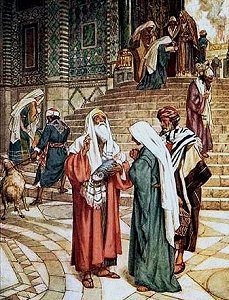Thou light of Gentile nations,
Thou Savior from above,
Drawn by Thy Spirit’s leading,
We come with joy and love
Into Thy holy temple
And wait with earnest mind
As Simeon once had waited
His God and Lord to find.
Yea, Lord, Thy servants meet Thee
In every holy place
Where Thy true Word has promised
That we should see Thy face.
Today Thou still dost grant us
Who gather around Thee here
In arms of faith to bear Thee
As did that agèd seer.
Be Thou our joy and brightness,
Our cheer in pain and loss,
Our sun in darkest terror,
The glory round our cross,
A star for sinking spirits,
A beacon in distress,
Physician, friend in sickness,
In death our happiness.
Let us, O Lord, be faithful
Like Simeon to the end,
So that his prayer exultant
May from our hearts ascend:
O Lord, now let Thy servant
Depart in peace, I pray,
Since I have seen my Savior
And here beheld His day.
My Savior, I behold Thee
With faith’s enlightened eye;
Of Thee no foe can rob me,
His threats I can defy.
Within Thy heart abiding,
As Thou, O Lord, in me,
Death can no longer frighten
Nor part my soul from Thee.
Lord, here on earth Thou seemest
At times to frown on me,
And through my tears I often
Can scarce distinguish Thee;
But in the heav’nly mansions
Shall nothing dim my sight;
There shall I see Thy glory
In never-changing light.

